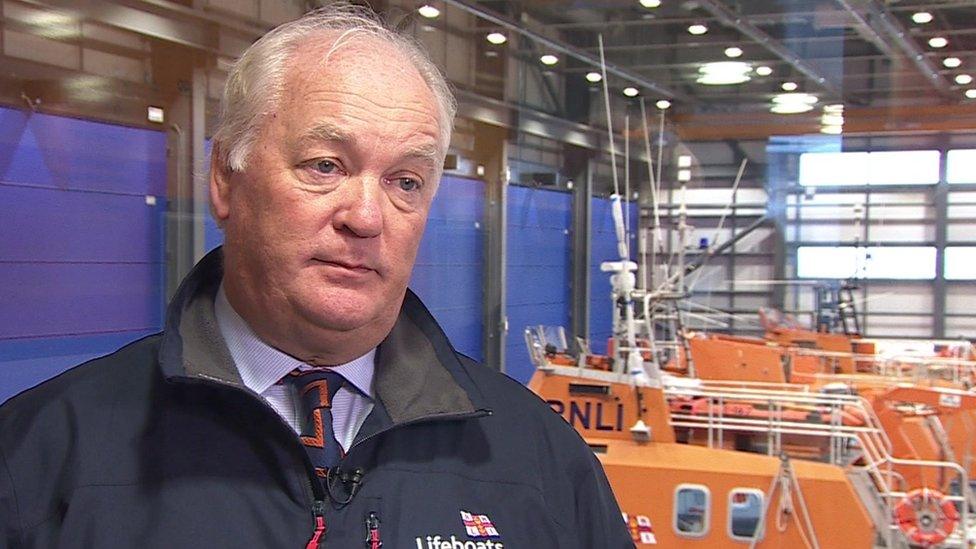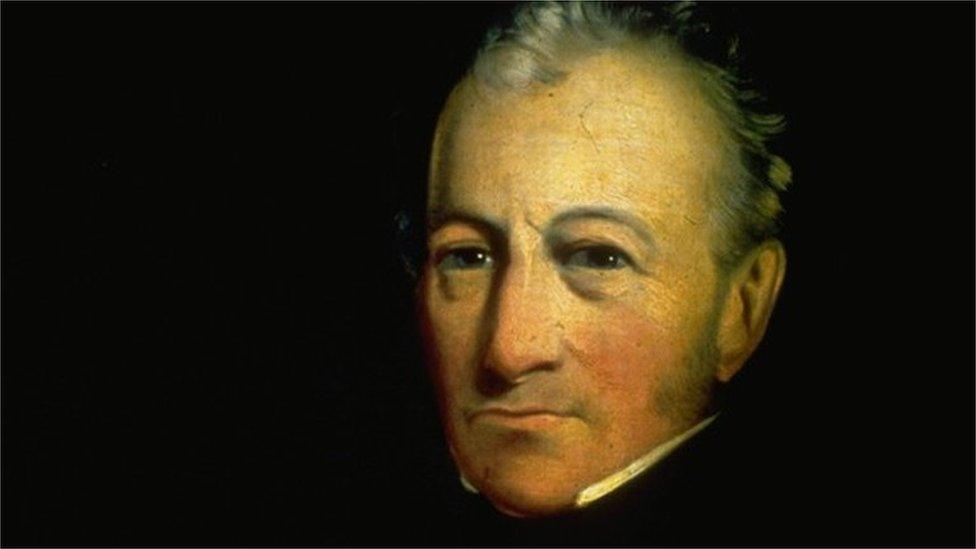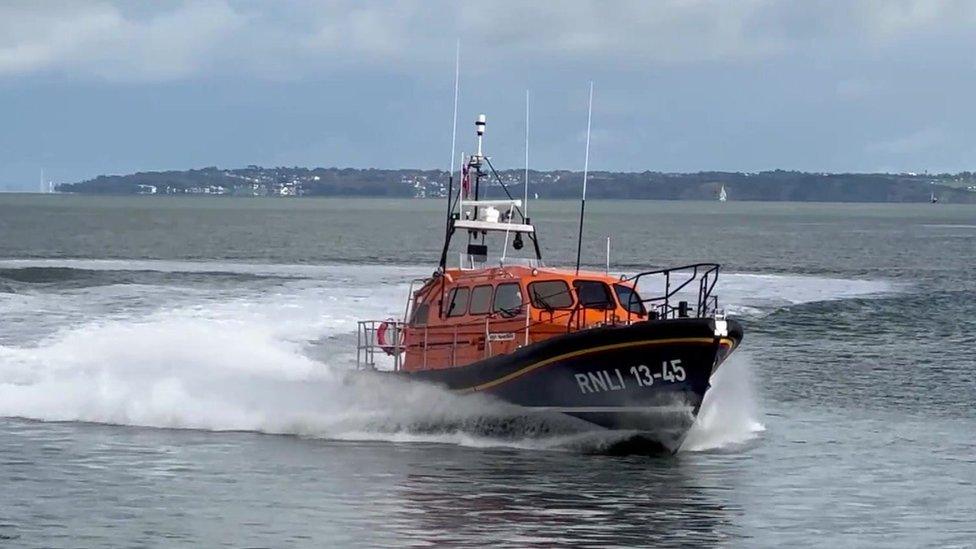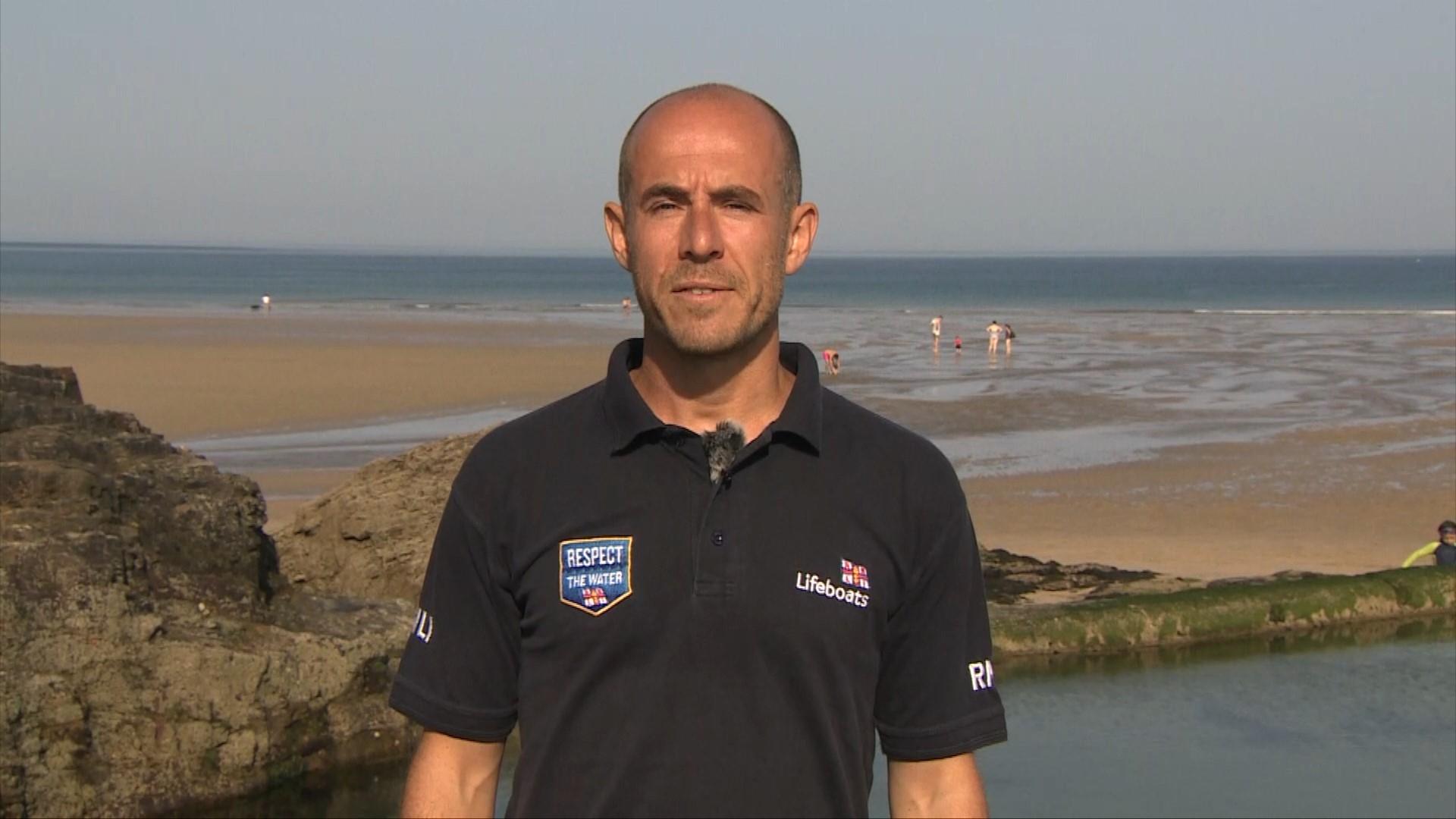RNLI at 200: New challenges but saving lives 'still our core purpose'
- Published

Chief executive Mark Dowie said the charity's operations had changed in recent decades
Royal National Lifeboat Institution (RNLI) crews on the south coast of England maintain the same life-saving motivation as its founder 200 years ago, its chief executive has said.
Based in Poole, Dorset, the charity was set up by Sir William Hillary in 1824.
Current chief executive Mark Dowie said its operations, two-centuries on, were "fundamentally different".
He said keeping people safe at sea, including rescuing migrants in the Channel, was "our core purpose".
A national lifeboat service was the vision of Sir William Hillary, a resident of the Isle of Man, who wanted to the reduce the death toll from the 1,800 shipwrecks annually around the British Isles at the time.
He convinced a group of influential people in the City of London to take notice and the Royal National Institution for the Preservation of Life from Shipwreck was established at a meeting in the London Tavern on Bishopsgate on 4 March 1824.

Sir William Hillary established the RNLI in 1824
Speaking to mark the bicentenary, Mr Dowie said the organisation had changed in recent decades in response to changes in leisure activities.
It has set up a lifeguard service for beaches, including Bournemouth and Swanage, and begun education campaigns about water safety.
"We're now seeing many more people using the sea for fun," Mr Dowie said, adding: "Our smaller inshore lifeboats are doing more closer in to shore than they were doing only 30 years ago.
"Paddleboarding and wild water swimming weren't a thing even 15 years ago - people will use the seas in different ways, we'll have to find ways to help them stay safe."
Addressing the criticism aimed at the RNLI that it was "taxi service" for migrants attempting to cross the English Channel, he said it was "just saving lives at sea".
"It's a challenge that's core to our purpose.
"We're tasked by the coastguard to a report of distress in the English Channel - we'll go and very often we'll find severe distress and we'll bring those people to safety."

RNLI lifeboats are crewed by volunteers
Mr Dowie admitted the charity "struggles for volunteers".
"We will take people from all walks of life and train them to be lifeboat people and lifeguards," he said. "We also have many more women crewing at sea - that's something I'm really keen to encourage.
"It's essential we welcome and take everyone we can who wants to work with the RNLI.
"There is huge amounts of leisure on the sea in this part of the world - there's also diving, fishing boats and passing traffic.
"Our crews here are very busy indeed. We have a very strong team on this strip of the coast to deal with that risk - we're very proud of them," he added.

Follow BBC South on Facebook, external, X, external, or Instagram, external. Send your story ideas to south.newsonline@bbc.co.uk, external.
- Published17 December 2023
- Published21 July 2021
